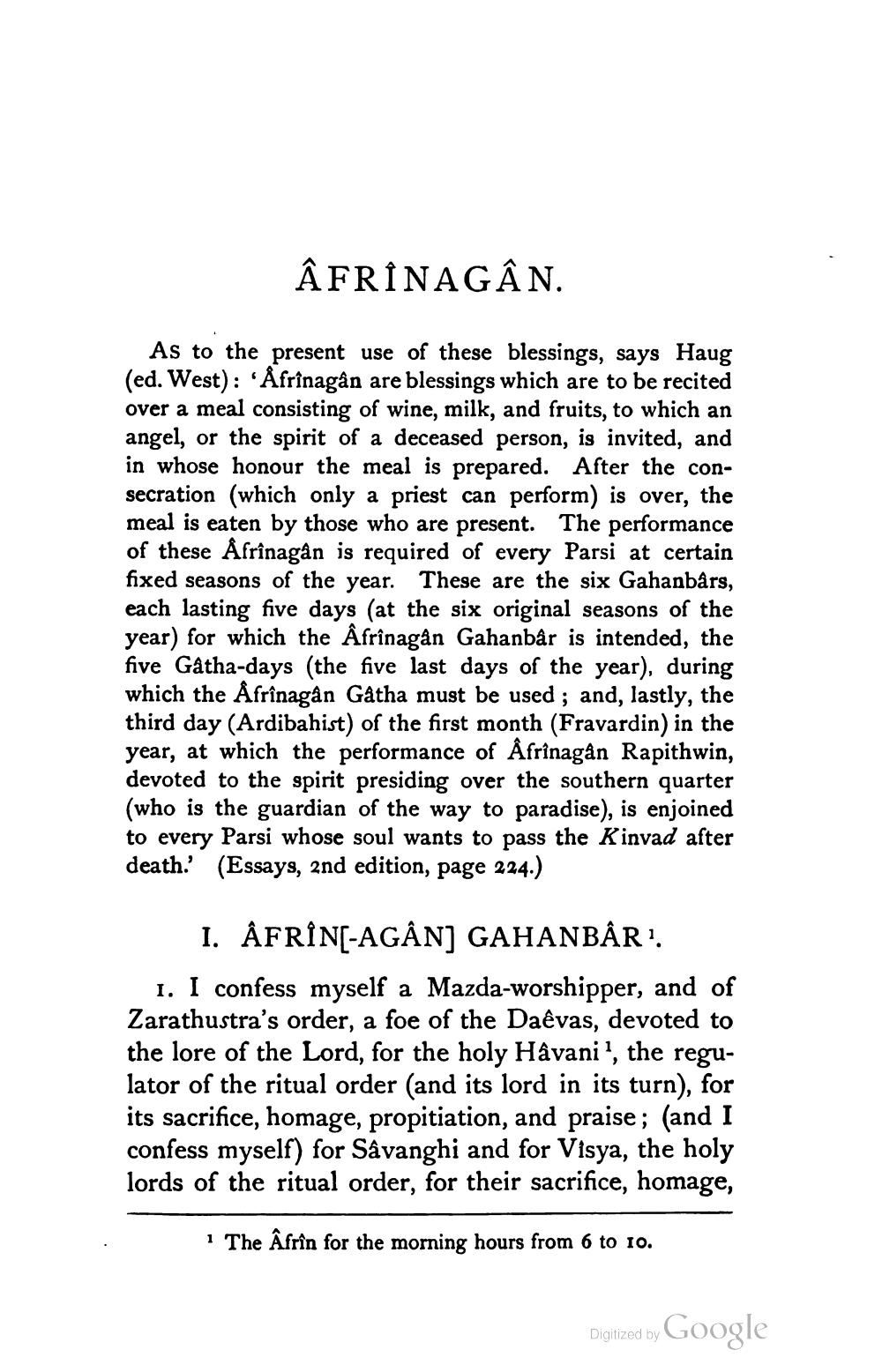________________
ÂFRÎNAGÂN.
As to the present use of these blessings, says Haug (ed. West): "Åfrînagân are blessings which are to be recited over a meal consisting of wine, milk, and fruits, to which an angel, or the spirit of a deceased person, is invited, and in whose honour the meal is prepared. After the consecration (which only a priest can perform) is over, the meal is eaten by those who are present. The performance of these Åfrînagan is required of every Parsi at certain fixed seasons of the year. These are the six Gahanbârs, each lasting five days (at the six original seasons of the year) for which the Âfrînagan Gahanbar is intended, the five Gatha-days (the five last days of the year), during which the Åfrînagan Gatha must be used ; and, lastly, the third day (Ardibahist) of the first month (Fravardin) in the year, at which the performance of Åfrinagan Rapithwin, devoted to the spirit presiding over the southern quarter (who is the guardian of the way to paradise), is enjoined to every Parsi whose soul wants to pass the Kinvad after death.' (Essays, 2nd edition, page 224.)
1. AFRÎN[-AGÂN] GAHANBÂR?. 1. I confess myself a Mazda-worshipper, and of Zarathustra's order, a foe of the Daêvas, devoted to the lore of the Lord, for the holy Hâvani ", the regulator of the ritual order (and its lord in its turn), for its sacrifice, homage, propitiation, and praise; (and I confess myself) for Sâvanghi and for Visya, the holy lords of the ritual order, for their sacrifice, homage,
1 The Afrîn for the morning hours from 6 to 10.
Digitized by
Digitized by Google




